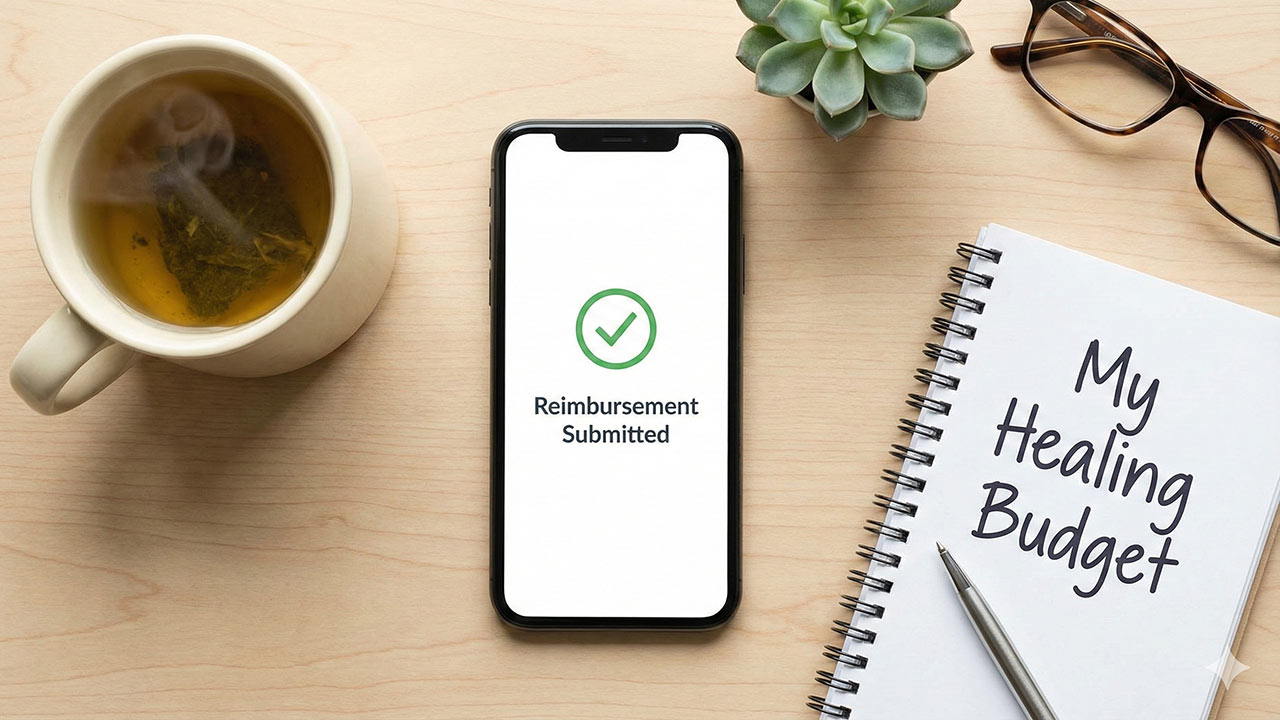Navigating life with Attention Deficit Hyperactivity Disorder (ADHD) can be akin to embarking on a journey through a maze with ever-shifting paths. It’s a condition that affects millions worldwide, influencing attention span, impulse control, and hyperactivity levels. However, amidst the challenges lie avenues for effective management, where therapy and medication emerge as guiding lights. In this exploration, we delve into the multifaceted realm of ADHD treatment options, examining the intricate interplay between therapeutic interventions and pharmacological remedies. From cognitive-behavioral strategies to stimulant medications and beyond, we uncover the tools and techniques aimed at enhancing focus, impulse regulation, and overall quality of life for individuals navigating the ADHD landscape. Join us as we embark on this journey of understanding and empowerment.
Understanding ADHD: A Complex Neurodevelopmental Disorder

Attention Deficit Hyperactivity Disorder (ADHD) is a multifaceted neurodevelopmental disorder characterized by persistent patterns of inattention, hyperactivity, and impulsivity. While often associated with childhood, ADHD can persist into adulthood, significantly impacting various aspects of daily functioning. The exact etiology of ADHD remains elusive, but it’s believed to involve a combination of genetic, environmental, and neurological factors. Brain imaging studies have highlighted differences in the structure and function of key brain regions involved in attention, impulse control, and executive functioning among individuals with ADHD. Despite its prevalence and impact, misconceptions surrounding ADHD persist, leading to stigma and barriers to diagnosis and treatment. Understanding the complexities of ADHD is crucial for effective management and support, emphasizing the importance of tailored interventions addressing the unique needs of individuals across the lifespan.
The Role of Therapy in ADHD Management: Strategies and Approaches
Therapy plays a pivotal role in the comprehensive management of ADHD, offering a range of strategies and approaches aimed at enhancing coping skills, improving executive function, and addressing associated challenges. Cognitive-behavioral therapy (CBT) stands out as one of the most researched and effective therapeutic modalities for ADHD. By targeting maladaptive thought patterns and behaviors, CBT helps individuals develop practical skills for managing impulsivity, organizing tasks, and sustaining attention. Additionally, behavioral interventions, such as parent training and classroom behavior management programs, are instrumental in providing support and structure for children and adolescents with ADHD. Furthermore, psychoeducation for individuals and their families fosters understanding and acceptance of ADHD, reducing stigma and promoting effective communication. The role of therapy extends beyond symptom reduction, empowering individuals with ADHD to navigate life’s complexities with resilience and confidence.
Medication Options for ADHD: Exploring Stimulants and Non-Stimulants

Medication is a cornerstone of ADHD treatment, offering symptom relief and improving functional outcomes for many individuals. Stimulant medications, such as methylphenidate and amphetamine derivatives, are among the most commonly prescribed pharmacological interventions for ADHD. By increasing dopamine and norepinephrine levels in the brain, stimulants enhance attention, impulse control, and executive function. Non-stimulant medications, including atomoxetine and guanfacine, offer alternative treatment options for individuals who may not tolerate or respond adequately to stimulants. These medications target different neurotransmitter systems implicated in ADHD, providing symptom relief with varying mechanisms of action. The decision to initiate medication therapy involves careful consideration of individual needs, preferences, and potential side effects. Collaborative decision-making between healthcare providers, individuals, and their families is essential to optimize medication management and achieve therapeutic goals while minimizing risks.
Cognitive-Behavioral Therapy (CBT) for ADHD: Techniques and Benefits
Cognitive-Behavioral Therapy (CBT) is a fundamental component in managing ADHD, offering structured techniques to enhance coping skills and executive function. By providing psychoeducation, behavioral interventions, and cognitive restructuring, CBT equips individuals with valuable tools for navigating daily challenges with confidence and resilience. Incorporating CBT into ADHD treatment plans ensures a personalized approach tailored to individual needs, promoting long-term well-being and functional success.
- Psychoeducation: Providing insight into ADHD symptoms and management strategies.
- Behavioral Interventions: Developing practical skills for organization and time management.
- Cognitive Restructuring: Challenging maladaptive thought patterns to enhance coping strategies.
- Skill Building: Equipping individuals with tools to improve attention and impulse control.
- Holistic Approach: Addressing cognitive and behavioral aspects for comprehensive management.
Incorporating CBT into ADHD treatment plans offers a personalized and effective approach to addressing the challenges associated with the disorder, empowering individuals to lead fulfilling and productive lives.
Lifestyle Modifications: Complementary Approaches to ADHD Treatment
In addition to therapy and medication, lifestyle modifications play a crucial role in the holistic management of ADHD, offering complementary approaches to enhance symptom control and overall well-being. Regular physical exercise has been shown to have beneficial effects on attention, mood, and cognitive function in individuals with ADHD. Engaging in activities such as sports, yoga, or martial arts not only promotes physical health but also provides opportunities for stress reduction and self-regulation. Adequate sleep hygiene is another important consideration, as insufficient or poor-quality sleep can exacerbate ADHD symptoms. Establishing a consistent sleep schedule, creating a relaxing bedtime routine, and minimizing electronic device use before bedtime can contribute to better sleep quality and daytime functioning. Moreover, dietary interventions, such as reducing sugar intake and incorporating omega-3 fatty acids, may offer additional support for some individuals with ADHD. By incorporating these lifestyle modifications into daily routines, individuals can optimize their ADHD management and improve overall quality of life.
Integrative Approaches: Combining Therapy and Medication for Optimal Results
Integrative approaches to ADHD treatment involve combining therapy and medication to address the diverse needs of individuals and optimize treatment outcomes. By integrating pharmacological interventions with psychotherapy, individuals can benefit from a comprehensive and personalized approach that targets both the neurobiological and psychosocial aspects of ADHD. For example, combining cognitive-behavioral therapy (CBT) with medication therapy can enhance the effectiveness of treatment by addressing underlying cognitive and behavioral patterns while providing symptom relief. Additionally, adjunctive therapies, such as mindfulness-based interventions or neurofeedback, may further complement traditional treatment approaches by promoting self-awareness, emotion regulation, and attentional control. Collaborative care models involving interdisciplinary teams of healthcare providers ensure coordinated and holistic management, incorporating the expertise of psychiatrists, psychologists, educators, and other professionals. By embracing integrative approaches, individuals with ADHD can access a continuum of care that addresses their unique strengths and challenges, fostering resilience and promoting long-term success.
Personalized Treatment Plans: Tailoring Strategies to Individual Needs
Personalized treatment plans for ADHD tailor interventions to individual needs, ensuring optimal care and outcomes. These plans involve comprehensive assessments and collaboration between healthcare providers, individuals, and their families. By adapting strategies based on evolving needs and responses, personalized treatment plans empower individuals to actively participate in their journey towards improved well-being.
- Comprehensive assessment: Conducting thorough evaluations to understand individual symptoms, strengths, and challenges.
- Collaboration: Working closely with healthcare providers, individuals, and their families to develop treatment plans.
- Goal-setting: Establishing specific and achievable goals to guide the treatment process.
- Flexibility: Adapting interventions and strategies based on individual responses and evolving needs.
- Empowerment: Encouraging active participation and decision-making in the treatment journey.
Personalized treatment plans offer tailored strategies to address the diverse needs of individuals with ADHD, promoting empowerment, flexibility, and collaboration in achieving meaningful outcomes.
Conclusion
Navigating the complexities of ADHD requires a multifaceted approach that encompasses therapy, medication, lifestyle modifications, integrative strategies, and personalized treatment plans. Understanding the intricacies of ADHD as a neurodevelopmental disorder is essential for effective management and support, emphasizing the importance of tailored interventions that address individual needs across the lifespan. At Resilient Mind Counseling, our mission is rooted in fostering a compassionate and inclusive healing environment that celebrates the uniqueness and resilience of every individual. We are committed to providing support for the LGBTQIA+ community, Neurodivergent individuals, and those from BIPOC communities. If you or a loved one are seeking guidance and support in managing ADHD, we invite you to reach out to us at (828) 515-1246 or scheduling@resilientmindcounseling.com. Located at 41 Clayton St. #300, Asheville, NC 28801, we’re here to partner with you on your journey towards a brighter, more empowered future. Take the first step towards holistic ADHD management today.














